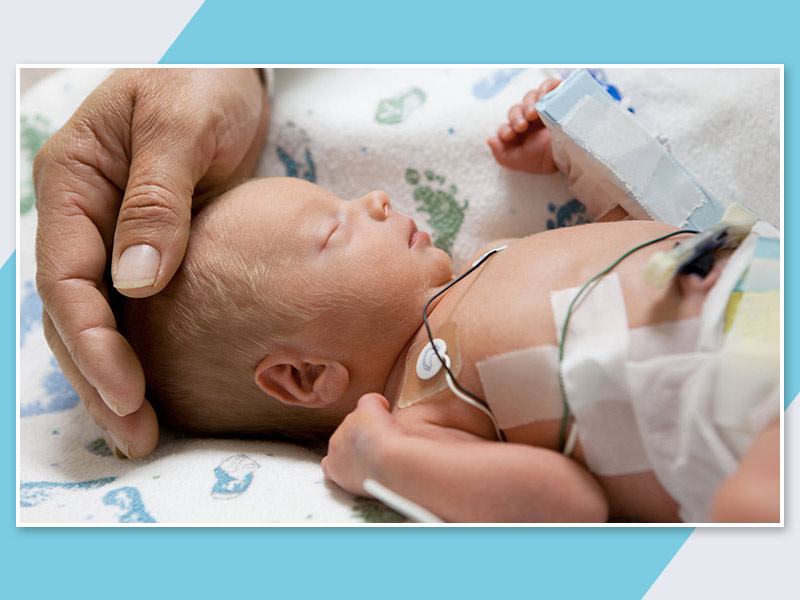
Studies show that out of the 10.8 million children who die annually, 3.9 million deaths take place within the first 28 days after birth. More than 96% of all neonatal deaths occur in developing countries, and pneumonia accounts for a substantial proportion of these. Intrauterine and early onset pneumonia was found at autopsy in 10–38% of stillborn and 20–63% of live-born babies who subsequently died, with the highest incidence in poorer socioeconomic groups. There are therefore likely to be between 750,000 and 1.2 million neonatal deaths annually where pneumonia is involved, and neonatal pneumonia accounts for 10% of global child mortality.
Speaking with the editorial team of Onlymyhealth, Dr Hemant Sharma, Consultant- Dept of Neonatology at Amrita Hospital, Faridabad explains the impact of maternal health on pneumonia risk in preterm babies. Here is what he shared with us.
Maternal health is the primary factor for both premature delivery and early-onset infections. Maternal undernourishment and poor hygiene increase the risk for intrauterine infections and subsequent premature birth by manifolds. Early-onset pneumonia is mostly acquired from the mother during labour or delivery. Prompt management of urinary tract or birth canal infections prevents preterm birth and infective neonatal sequelae like pneumonia.
"A mother’s health is of prime importance while she is pregnant. If there were concerns for infection in the mother, especially pre delivery, this would put the baby at risk for infection. It is advisable for the mother to consult an obstetrician regarding this. Maternal fever, maternal tachycardia, foul-smelling vaginal discharge, lower abdominal pain or increased white blood counts are indicators of possible maternal infections. Preterm labour (less than 37 weeks gestation) or prolonged/preterm rupture of membranes (more than 18 hours) are also known to increase the incidence of neonatal infection," shares Dr Sharma.

Also Read: Skin and Stress: Connection Between Stress and Skin Reactions
The pneumonia mortality risk is strongly dependent on the degree of immaturity and age of the neonate from birth. Case fatality rates are much higher for intrauterine or early onset pneumonia than for late onset neonatal pneumonia, and higher among low birth weight newborns. Neonatal pneumonia can be acquired prenatally due to intra amniotic infections or through birth canal fluid.
Interventions such as prophylactic antibiotics for women who are at risk and antibiotic treatment after preterm rupture of membranes can effectively reduce the incidence of early-onset neonatal pneumonia. However, an increased dependency on antibiotics can lead to greater antimicrobial resistance which in turn paves the way for more medical costs, longer stays at hospital facilities, and higher mortality rates.

Maternal nutrition and healthy habits like no smoking or alcohol consumption, reduce the incidence of prematurity and subsequent complications. Good antenatal care reduces neonatal infections like pneumonia and positively influences an infant’s health.
Maternal immunisation followed by neonatal vaccination with pneumococcal vaccine also provides protective antibodies in newborns against pneumonia. Breast milk as well as maternal-foetal circulation can facilitate the production of antibodies.
"To put it all together, maternal overall health status influences neonatal health. Poor hygiene and nutrition may lead to prematurity and serious infections including neonatal pneumonia. A healthy maternal lifestyle and prompt management of maternal infections can prevent serious neonatal pneumonia and similar illnesses," Dr Sharma concludes.







